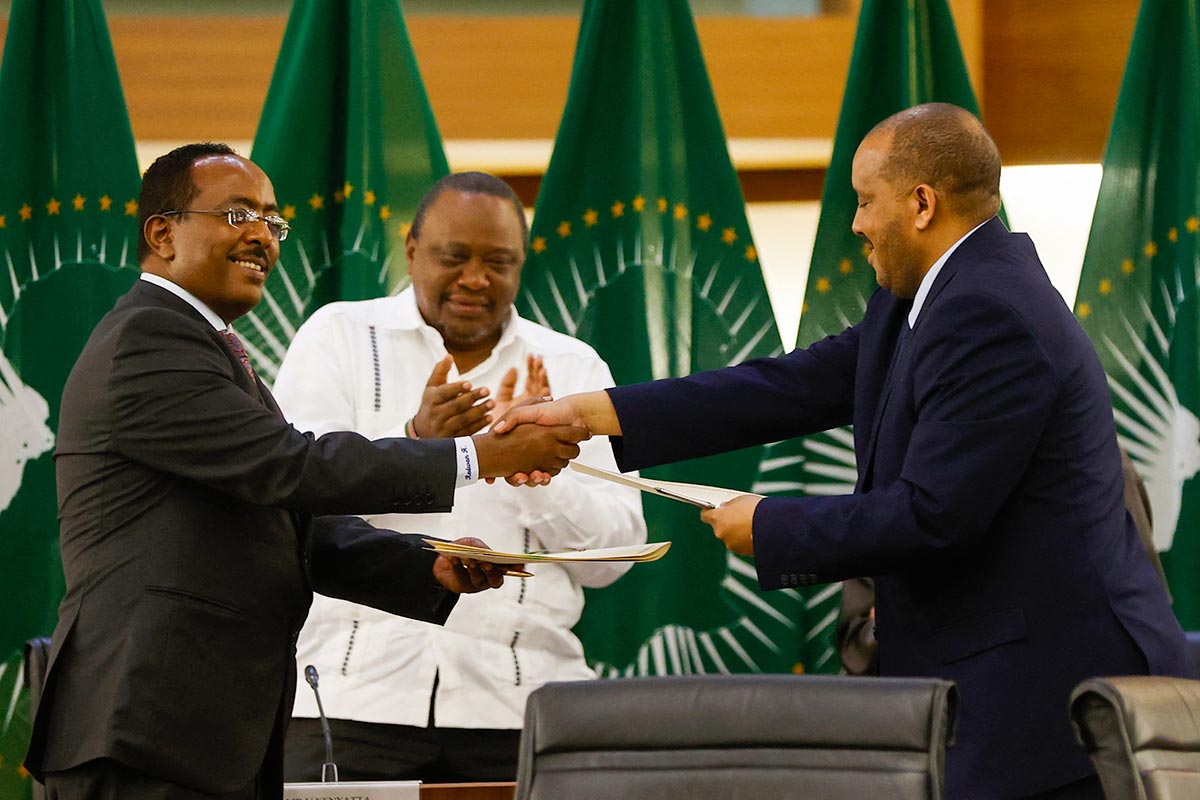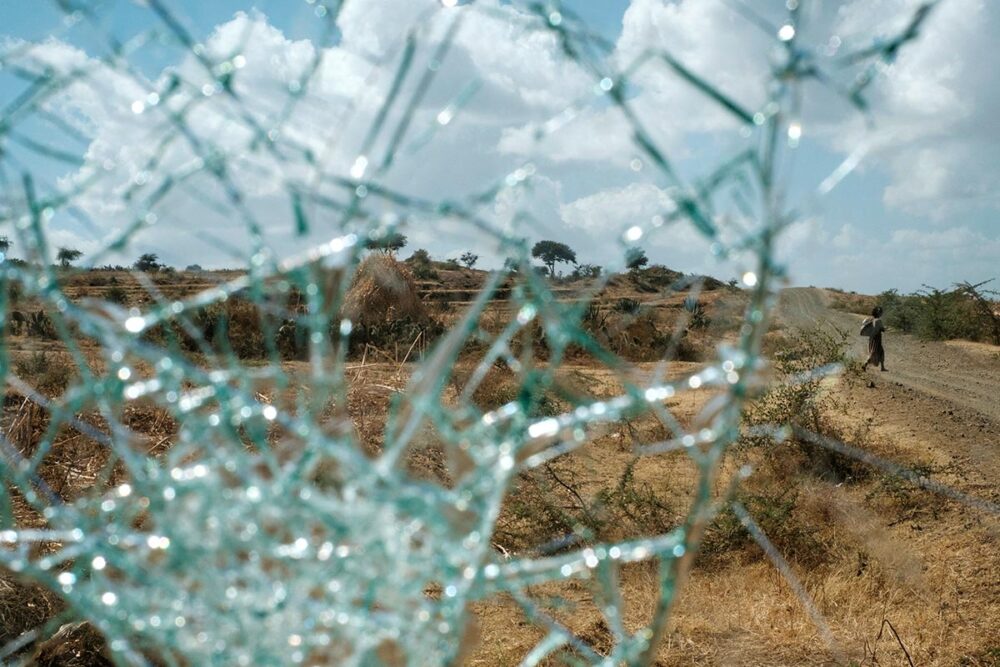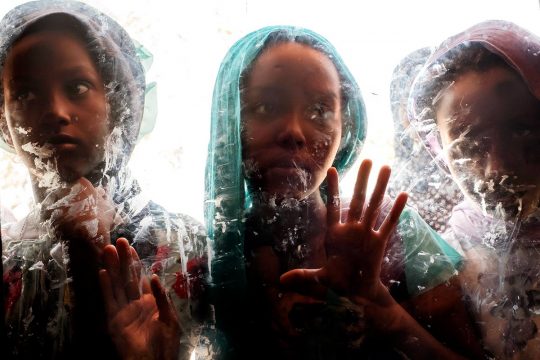Steven Ratner of the US, one of the three members of the UN International Commission of Human Rights Experts on Ethiopia that has been working for the past two years, says all the commission members are “disappointed” by the non-renewal of their mandate. “In our report and our oral statement to the [Human Rights] Council we made it clear that it was their responsibility, as an organ created to prevent human rights abuses and respond to them, to ensure continued international oversight,” he told Justice Info. “Our report is not just a record of past events but an account of ongoing concerns, and frankly a prediction of more atrocities to come.”
In this session of the Human Rights Council in Geneva (September 11 to October 13) the Ethiopia commission presented two reports: the first report documents ongoing “grave and systematic violations of international law and crimes committed in Tigray, as well as Amhara, Afar and Oromia regions”, including mass killings and rape, while the second report uses UN criteria to signal an acute risk of further atrocity crimes in Ethiopia.
Kjetil Tronvoll, professor of peace and conflict studies at Oslo New University College and an expert on Ethiopia, says the ending of the commission’s mandate is of grave concern. “It’s deeply worrying and troubling and serious, because this was the only mechanism which could provide an objective analysis of the situation with regard to human rights violations and mass atrocities in Ethiopia,” he said. “It is obvious that the regime itself would not manage or is not willing to provide a balanced review of the atrocities which were taking place and which are taking place as we speak. Neither the European Union (EU) nor the United States (US) wanted to table a resolution to prolong the mandate, and that sends a clear signal that working against impunity and human rights abuse is not a number one priority.”
Ongoing violence
The commission was set up amidst the brutal war between Ethiopia’s federal government of Abiy Ahmed and the Tigray region in the country’s north, led by the Tigray People’s Liberation Front (TPLF). Up to 600,000 people are estimated to have been killed in two years, with thousands displaced or pushed into exile. A government blockade on Tigray deprived its people of food and essential services, leaving much of the population in need of humanitarian aid. There were allegations of rape, torture and other atrocities on both sides of the conflict, which the UN Commission of Human Rights Experts on Ethiopia said could amount to war crimes and crimes against humanity.
A peace deal was signed on November 2, 2022 between the Ethiopian federal government and the TPLF, under the auspices of the African Union, although Tronvoll says the US and Kenya were the main drivers of the negotiations. China, a major economic investor in Ethiopia, was an observer. The accord came into force the next day. While fighting between these two parties has stopped, the UN commission’s report of September 14, 2023 says that “the conflict in Tigray has not ended, with Eritrean troops and Amhara militias engaging in ongoing violations”. There is also violence in other parts of the country, including Oromia, where the conflict between the federal government and the separatist Oromo Liberation Army has escalated.
In addition, says UN commission member Ratner, the Ethiopian government has not ensured the withdrawal of foreign forces from Tigray or full access to humanitarian aid as it is supposed to do under the peace agreement. “The key players in the ongoing violence are the Eritrean forces. They have not withdrawn from the country, despite the requirement for territorial integrity in the COHA [peace accord], and continue to conduct operations with the acquiescence of the Ethiopian government -- with all the violations that we talked about in our report,” he said. These are confirmed by NGOs such as Amnesty International, which cites rape, sexual slavery, extrajudicial executions and looting by Eritrean forces in Tigray, constituting war crimes and possible crimes against humanity.
And the government has not restored full humanitarian aid to civilians in Tigray. “There’s virtually no care for the victims. There are a whole lot of ways in which, even if the government is not actively involved in killing Tigrayans, it is still failing in its responsibilities,” says Ratner.

Evading international scrutiny
The peace agreement also says that “the government of Ethiopia shall implement a comprehensive national transitional justice policy aimed at accountability, ascertaining the truth, redress for victims, reconciliation, and healing, consistent with the Constitution of FDRE [Federal Democratic Republic of Ethiopia] and the African Union Transitional Justice Policy Framework.” In January this year, the government published a draft document on policy options for transitional justice. This was followed by a series of consultations held across the country as of March. However, the UN experts say the transitional justice process is flawed, and that “Ethiopia has sought to evade international scrutiny through the creation of domestic mechanisms ostensibly to fight impunity”.
The public consultations are the most visible part of the process so far, and the one put forward by the government to try and show it is serious, says Ratner. “That process does not meet international standards, because it is not victim-centred, it’s not inclusive, they’re not really creating an environment where all groups can speak freely about what they want,” he told Justice Info. “It’s a controlled environment, maybe even a coerced environment.”
The transitional justice policy options paper, on which the consultations are based, is also flawed, he continued. “It doesn’t talk about how certain things have to be off the table, like amnesties for war crimes, and other things have to be on the table, like prosecutions.”
“It’s an impunity process”
Tronvoll agrees that the process does not look very credible. “The process of transitional justice suggested by the government is actually not focusing on Tigray, not focusing on Amhara, but on the period from 1995 to 2018. That is the period of TPLF-EPRDF [a coalition of parties including the TPLF] in power,” he said. “They do include the later period [after TPLF left the coalition in 2019] but that is very much downplayed. There is very little juridical accountability – but alluding to the fact that it should be the TPLF made accountable for what they did when they were in power. The position paper cannot be taken as credible and balanced in addressing the atrocities that have happened since 2020 in the war on Tigray and the war in Amhara.”
He says the policy options paper is more about reconciliation and restorative justice than accountability. “In a pure pragmatic, political way that’s OK, but say it like that then, don’t say it’s an accountability process because it is not. It’s an impunity process.”
The Ethiopian government has not cooperated with the UN commission, says Ratner, apart from receiving it once in the early days of the mandate in Addis Ababa to try to set conditions for its work. These were unacceptable to the three UN human rights experts. The government has slammed the commission’s reports as “inflammatory” and biased, and has lobbied hard to get the UN mandate ended. This time it succeeded.
Strategic interests above human rights
“Ethiopia has lobbied actively to discontinue the mandate and managed to get the Africa representatives with them. They have also, obviously, been in close discussions with the EU and US partners,” says Tronvoll. “I think it’s a signal the neither the EU nor the US wanted to table a resolution to prolong the mandate. That sends a clear signal that we have other priorities, and strengthening accountability for human rights abuse and fighting impunity is not the number one priority.”
He says the EU, which tabled the original resolution that created the commission, was split this time, and it was particularly Germany and France that lobbied against extending the mandate. “I think they were afraid that, if they pushed for a renewal of the mandate and for proper juridical accountability for the atrocities that have taken place, Ethiopia would lock the door to Western countries and align itself more closely with the East,” says Tronvoll. “The Horn of Africa is a new geopolitical hotbed. There is intense competition between alliances, with China, Russia, Saudi, Qatar, the Emirates, EU, US all kind of trying to get the attention of Abiy Ahmed and the regime.” He says the West was afraid it might lose Ethiopia as a strategic ally.
No end of violence in sight
The other factor, Tronvoll continues, is aid cooperation, as Ethiopia is one of the biggest recipients of Western aid. Coinciding with the non-renewal of the UN Ethiopia commission’s mandate, the EU signed off on a 650-million-euro development deal during a visit to Addis Ababa by a top EU official, aimed at improving ties after the end of the war in Tigray. “It is time to gradually normalise relations and rebuild a mutual reinforcing partnership with your country [Ethiopia]," AFP reported European Commissioner for International Partnerships Jutta Urpilainen saying as she signed the deal on October 3.
Ratner says this does not need to be the end of international scrutiny of Ethiopia’s human rights and transitional justice record. He says the task could now be taken up by the UN High Commissioner for Human Rights, Volker Türk of Austria, and Western countries, if they really make their aid and cooperation conditional on these concerns as they promise.
But Tronvoll is less optimistic. “Ethiopia has relapsed into conflicts more or less every decade,” he says. “It’s ingrained into the political culture of Ethiopia that violence is an acceptable means. I think to stop that constant cycle of violence, you need to have a real accountability process for the atrocities taking place. And the only mechanism that can provide that is an international jurisdiction. But I also understand that will not happen, Ethiopia is a sovereign country. And we will continue to see mass atrocities happening in Ethiopia.”







